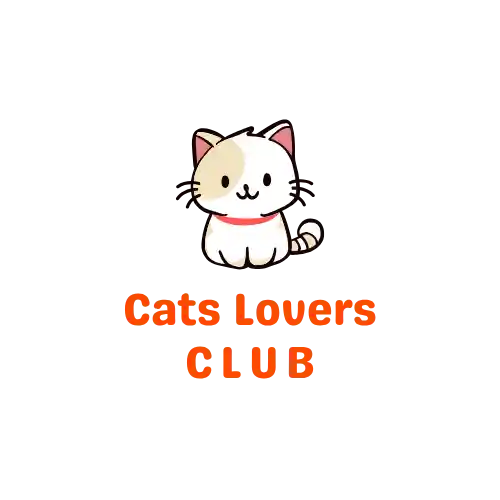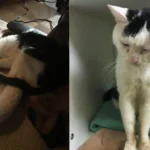When your cat hops beside you, you’re curled up on the couch, enjoying a warm cinnamon roll or a bowl of Cinnamon Toast Crunch. They nuzzle your arm, sniff the air, and give you that look—you know, the one that says, “Are you going to share that with me?”
Before you toss them a crumb, you pause. Can cats eat cinnamon? Is it safe? Or are you unknowingly offering something that might harm them?
Let’s get into it—and clear up the cinnamon confusion once and for all.
Is Cinnamon Safe for Cats?
The short answer? Not really.
Cinnamon isn’t toxic like chocolate or onions, but that doesn’t mean it’s safe. Cats have a very sensitive metabolism, and specific compounds in cinnamon can cause problems—especially when eaten in large amounts or over time.
Cinnamon contains a compound called coumarin, which, in high doses, can affect the liver. Cats lack the enzymes to efficiently break down certain plant-based chemicals, making them more vulnerable than humans.
Even a small amount can irritate their mouth, cause coughing, or trigger allergic reactions.
So no, cinnamon isn’t something your cat should be nibbling on—even if they seem interested.
Can Cats Eat Cinnamon Powder?
If your cat happens to lick a speck of cinnamon powder off the floor, they’ll probably be okay. But that doesn’t mean it’s safe to let them have more.
Cinnamon powder can be especially irritating to a cat:
- Nose and respiratory system
- Mouth and tongue
- Digestive tract
Cats have tiny, delicate airways. Just inhaling a puff of cinnamon dust can cause sneezing, wheezing, or coughing. In more serious cases, it can lead to breathing difficulties or even asthma-like symptoms.
And if they ingest too much powder? That’s when the risk of vomiting, low blood sugar, or liver stress becomes real.
So, if you spill some while baking, clean it up before your curious feline gets involved.
Can Cats Eat Cinnamon Rolls?
We get it—cinnamon rolls are irresistible. That warm, gooey goodness makes you want to share a bite with your furry friend. But sadly, cinnamon rolls are a definite no for cats.
Here’s why:
- They’re packed with sugar, which cats don’t need (and can’t taste properly).
- Most recipes include butter, milk, and eggs, which some cats are intolerant to.
- They’re often topped with icing, which is just empty sugar calories.
- And yes—they contain cinnamon.
Even a small bite might lead to tummy troubles like vomiting or diarrhea. And if your cat has any underlying health issues, it could trigger more serious reactions.
So, while your cat might beg for a taste, saving those cinnamon rolls for yourself is best.
Can Cats Eat Cinnamon Toast Crunch?
If your cat stole a piece of your Cinnamon Toast Crunch, don’t panic—it’s unlikely to cause an emergency. But it’s still not something they should be eating.
Cinnamon Toast Crunch contains:
- Cinnamon powder
- Sugar and salt
- Preservatives and artificial flavors
None of these ingredients offer nutritional value for cats. Even a few bites can upset their stomach, especially if they have a sensitive digestive system.
Plus, cereals are processed foods made for humans—not animals. Your cat’s body wasn’t designed to handle that kind of snack.
What Happens If a Cat Eats Too Much Cinnamon?
If your cat eats a significant amount of cinnamon—whether it’s powder, a cinnamon stick, or a pastry—keep an eye out for the following symptoms:
- Coughing or wheezing
- Drooling or pawing at the mouth
- Vomiting or diarrhea
- Rapid heartbeat
- Lethargy or unusual behavior
These could be signs of cinnamon toxicity or a severe allergic reaction.
Call your vet immediately if you notice any of these. It’s always better to act early than to wait for symptoms to worsen.
Why Do Cats Seem Interested in Cinnamon?
Most cats aren’t attracted to cinnamon the way they are to fish or meat. But occasionally, a curious kitty might take a sniff—or a nibble—out of sheer curiosity.
Some cats like new smells. Others might think your cinnamon-sprinkled snack is worth trying because you’re eating it.
It’s not that they crave cinnamon—it’s that they trust you and want to be involved in whatever you’re doing.
Kind of sweet, right? But it’s also a little dangerous if cinnamon’s on the menu.
What If Cinnamon Is in the Air?
Even aromatherapy or scented candles with cinnamon oil can be irritating to cats. Cinnamon oil is much more concentrated than ground spice, and cats are susceptible to essential oils.
If you’re diffusing cinnamon oil or burning a cinnamon-scented candle:
- Keep the area well-ventilated
- Make sure your cat can leave the room
- Watch for signs of sneezing, watery eyes, or hiding
And never apply essential oils (like cinnamon oil) to your cat’s fur or collar. It’s not soothing—it’s harmful.
Safe Treat Alternatives for Cats
Want to treat your cat without the risk? Try offering:
- Plain cooked chicken
- Freeze-dried tuna or salmon
- Catnip or silvervine toys
- Vet-approved cat treats
These will satisfy their curiosity and bond-building instincts—without upsetting their stomach or endangering their health.
FAQs
Can cats eat cinnamon toast crunch?
No. It contains sugar, cinnamon, and additives that aren’t safe or healthy for cats.
Can cats eat cinnamon rolls?
No. Cinnamon rolls are high in sugar, dairy, and cinnamon—not suitable for your cat.
Can cats eat cinnamon powder?
A tiny lick likely won’t hurt, but cinnamon powder can irritate the mouth and airways or cause toxicity in larger amounts.
Final Thoughts: Keep Cinnamon Away from Curious Paws
You love your cat. You want to share your favorite things with them. But when it comes to cinnamon? It’s best to keep it to yourself.
Even though cinnamon isn’t always deadly, it’s risky. It just doesn’t belong in your cat’s bowl, from powders to pastries. Stick with safe, cat-approved treats and save the cinnamon goodness for your quiet moments.
And if your cat ever does sneak a bite of something spicy or sweet, don’t panic—just keep calm, watch closely, and call your vet if anything seems off.
Because of your cat’s comfort, health, and safety? That’s the sweetest treat of all.






GIPHY App Key not set. Please check settings